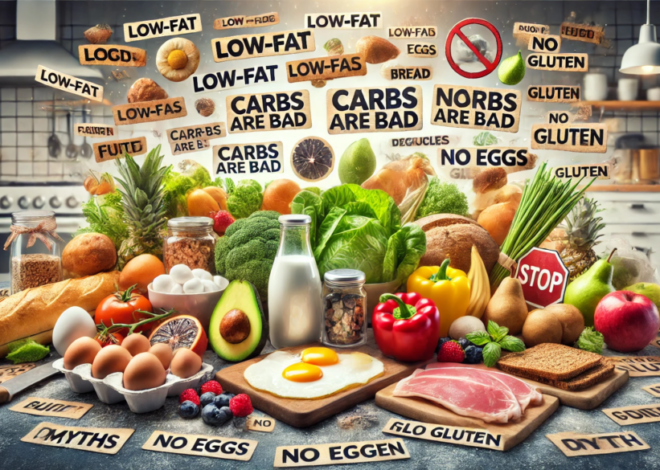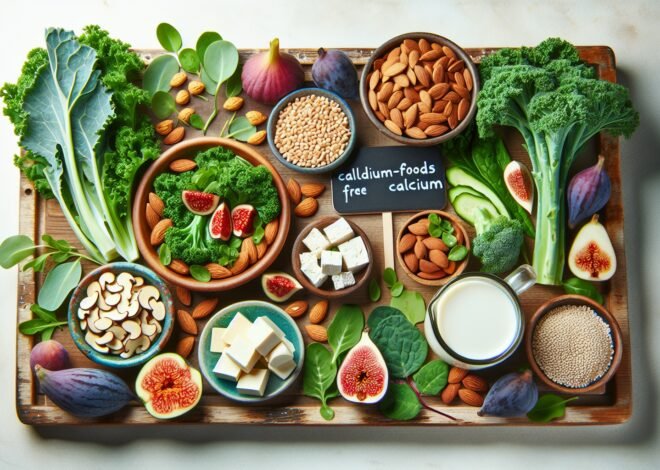
Does Eating Fat Make You Fat? Debunking the Biggest Myth
Does fat make you fat? This common question has fueled the misconception that eating fat leads directly to weight gain. Contrary to popular belief, dietary fat is not the primary culprit behind obesity. Studies indicate that it’s the type and amount of fat, along with overall calorie intake and activity levels, that affect weight gain. This article aims to debunk the myth that fat consumption leads to gaining weight by examining the roles of healthy fats, metabolism, and nutrition balance. Understanding these factors will help you make informed dietary choices and improve your overall health.
Understanding Dietary Fats and Their Role in Nutrition
Dietary fats often stir up a mix of confusion and interest. They are essential nutrients, yet misunderstood. Knowing the different types of fats and their functions is key to making informed dietary choices. Let’s explore what makes fats such a crucial part of our diet.
Types of Dietary Fats: Saturated, Unsaturated, and Trans Fats
Fats come in three main types: saturated, unsaturated, and trans fats. Each type affects your health differently. Saturated fats, mainly found in animal products and some plant oils, can increase cholesterol levels. Unsaturated fats, found in foods like avocados, nuts, and olive oil, are considered heart-healthy. They help reduce bad cholesterol and provide essential fatty acids. Trans fats, often found in processed foods, are the worst for heart health. They raise bad cholesterol while lowering good cholesterol.
Understanding these types is vital for choosing the right fats. Opt for unsaturated fats for daily consumption. Use saturated fats sparingly, and avoid trans fats whenever possible. Making these choices can improve heart health and maintain a balanced diet.
The Role of Fats in a Balanced Diet
Fats play a vital role in a balanced diet. They provide energy, support cell growth, and help absorb essential vitamins. Fats also contribute to the production of hormones and protect your organs. Including the right amount of fats in your diet can enhance overall health and well-being.
A balanced diet doesn’t mean cutting out fats. Instead, focus on incorporating healthy fats into your meals. This approach ensures you receive the benefits fats offer without the negative effects of unhealthy fat consumption. Balance is key.
Common Misconceptions About Eating Fats
Many misconceptions surround fat consumption. One common myth is that all fats are bad for you. This isn’t true. Healthy fats are essential for body functions. Another misconception is that eating fats leads directly to weight gain. It’s more about the type and quantity of fats consumed.
Fats often get a bad rap, but understanding their role can dispel these myths. Embrace healthy fats and learn to differentiate them from the harmful ones. This knowledge empowers you to make smarter dietary choices.
The Science Behind Fat Consumption and Weight Gain
Fat consumption often raises questions about weight gain. The body’s complex processes for handling fats can shed light on this connection. Delving into how fats are metabolized can clarify their impact on weight and overall health.
How the Body Processes Dietary Fats
The body processes dietary fats through digestion and absorption. Fats are broken down into fatty acids and glycerol in the small intestine. They are then absorbed into the bloodstream and transported to cells for energy or storage.
This process is efficient and ensures the body gets the energy it needs. However, consuming more fats than the body can use or store can lead to weight gain. Understanding this process helps you manage fat intake responsibly.
Caloric Content of Fats Compared to Carbs and Proteins
Fats, carbs, and proteins are the body’s primary energy sources. However, they differ in caloric content. Fats provide nine calories per gram, while carbs and proteins offer four calories per gram. This higher caloric density makes fat a concentrated energy source.
It’s important to consider the caloric content of fats when planning your diet. While fats pack more energy, the key is moderation. Balancing fat intake with carbs and proteins can help maintain a healthy weight.
The Relationship Between Fat Metabolism and Weight Gain
Fat metabolism and weight gain are closely linked. The body stores excess energy as fat, leading to weight gain if consumption exceeds expenditure. However, not all fats contribute to weight gain equally. Healthy fats can support metabolism and weight management.
Recognizing how different fats affect the body aids in managing weight. The focus should be on balancing intake and using fats as part of a healthy lifestyle. This approach can prevent unwanted weight gain and promote overall health.
Debunking the Myth: Does Eating Fat Make You Gain Weight?
The idea that eating fat directly leads to weight gain is a common misconception. By examining scientific studies and understanding the role of healthy fats, we can separate fact from fiction. This section uncovers the truth about fats and weight management.
Studies and Research on Fat Consumption and Obesity
Research shows that the type of fat consumed affects obesity risk. Diets high in trans and saturated fats are associated with weight gain. However, diets rich in unsaturated fats, such as the Mediterranean diet, are linked to lower obesity rates.
Studies emphasize the importance of fat quality rather than quantity. Opting for healthy fats supports weight management and overall health. Research continues to shift focus from fat intake to the broader dietary patterns affecting weight.
The Impact of Healthy Fats on Weight Management
Healthy fats play a crucial role in weight management. They promote satiety, helping control appetite and reducing overall calorie intake. Fats like omega-3s found in fish oil support metabolic health and aid in weight control.
Incorporating healthy fats into your diet can enhance weight management efforts. They provide essential nutrients while helping to manage hunger and energy levels. This balance is key to maintaining a healthy weight.
Practical Tips for Incorporating Fats into a Healthy Diet
Incorporating fats into your diet is easier with a few practical tips. Focus on consuming unsaturated fats from sources like olive oil, avocados, and nuts. Limit saturated fat intake by choosing lean meats and low-fat dairy products.
Avoid trans fats by steering clear of processed and fried foods. Use cooking methods that require less fat, such as grilling or steaming. By making these smart choices, you can enjoy the benefits of fats without compromising health.
Conclusion
Dietary fat itself does not directly make you gain weight. Weight gain occurs when there is a caloric surplus, where you consume more calories than your body uses. Fats are calorie-dense, so it’s easier to consume excess calories if you eat high-fat foods in large quantities. Healthy fats are an essential part of a balanced diet and can help with satiety and nutrient absorption. The key is moderating overall caloric intake and choosing healthy fats like those from nuts, avocados, and olive oil.
FAQ
How does dietary fat consumption contribute to weight gain?
Dietary fat is calorie-dense, providing more calories per gram than carbohydrates or proteins. Consuming more calories than your body uses can lead to weight gain, regardless of the source. However, fats also play a crucial role in satiety, potentially helping control appetite when consumed in moderation.
Is dietary fat responsible for increasing body fat percentage?
Excessive consumption of dietary fat, along with other macronutrients, can increase body fat percentage. It is essential to balance calorie intake with physical activity to prevent fat accumulation. Dietary fat itself is not solely responsible; overall calorie balance is key.
Can eating foods high in fat lead to obesity?
Foods high in unhealthy fats, such as trans fats and saturated fats, can contribute to obesity when consumed excessively. A balanced diet, emphasizing healthy fats like those from avocados, nuts, and fish, can support weight management and overall health.
What is the relationship between fat intake and weight management?
Fat intake and weight management are closely linked. Consuming healthy fats can aid in feeling full and satisfied, helping to control overall calorie intake. It’s important to include a variety of fats as part of a balanced diet to support long-term weight management.
Does consuming healthy fats help in weight loss?
Healthy fats, like those from olive oil and almonds, can aid in weight loss by promoting satiety and reducing the urge to overeat. They also support metabolic processes, making them an important component of a weight loss diet.
How can a high-fat diet impact metabolism and body weight?
A high-fat diet may boost metabolism and promote fat burning, but the type of fat matters. Diets rich in healthy fats can enhance metabolic health, while those high in unhealthy fats may lead to weight gain and metabolic issues. A balanced approach ensures the best outcomes.











